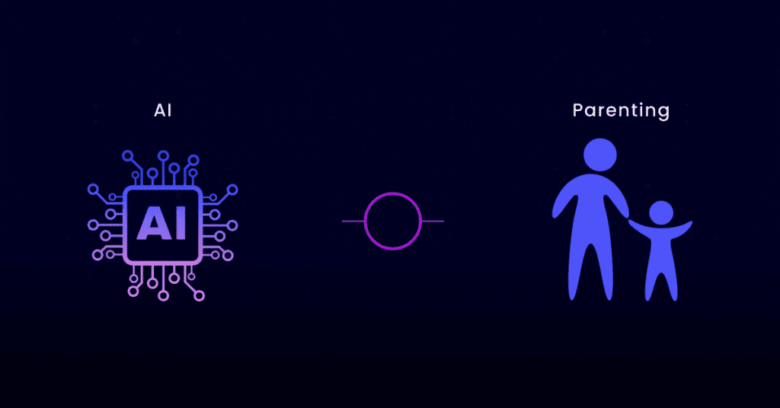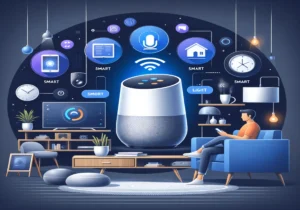A lot is going on in modern life that makes parenting more difficult than ever. Parents are often overwhelmed by the demands of their children, from getting to work to picking up their kids from school, doing housework, and tending to their emotional needs. Artificial intelligence is a transformative concept that is gradually altering the nature of our work from home. AI isn’t just about robots and smart devices; it’s about making systems work together to make everyday life easier, faster, and more connected.
With the increasing accessibility and user-friendliness of AI tools, apps, and virtual assistants, parents can effectively manage their responsibilities. AI significantly transforms the experience of doctor visits, homework assistance, and finding your kids. This article discusses how AI can change the way parents raise their children and make families more organized than ever.
AI-Powered Scheduling and Calendar Management:
Smart scheduling tools are one of the biggest ways AI can help parents prepare. These smart systems work seamlessly with your digital calendar, notifying you of your appointments, school events, extracurricular activities, and even family members’ birthdays. Over time, the AI learns your habits and figures out the best times to do things like go shopping or go on a family outing. Parents no longer have to manually add each event; they can use tools like Google Assistant or Apple’s Siri to do it with just voice commands.
Some of the more advanced platforms even sync with your child’s school calendar and instantly add holidays, exam dates, and parent-teacher conferences for you. Such functionality allows parents to spend more time with their children and less time worrying about how to get everything done. It’s like having a personal assistant whose sole purpose is to keep your family life running smoothly.
Add a Smart Home to Better Manage Your Time:
Artificial intelligence doesn’t just exist on your computer or phone; it’s in your home, too. Smart home devices like Amazon Alexa, Google Nest, and Samsung SmartThings are changing the way families live their daily lives. These AI tools can make your home life easier by allowing you to play music, set alarms, and control heating and lighting. For example, parents can set an alarm to turn on the lights when their child wakes up or play soothing music before their child goes to bed. And they can do the work for you.
For example, a robot vacuum can clean your floor while you work or go grocery shopping. These smart devices save parents time that they would otherwise spend on boring tasks. They also help keep the space more organized, which is ideal for children with tight schedules. This keeps the family connected all day and organizes the home.
AI Learning Tools and Homework Help:
Artificial intelligence has also become a craze in education. Children today have access to AI-powered learning tools that customize their education based on their strengths and weaknesses. Google’s Read Along, Khan Academy Kids, and other apps use AI to help children learn at their pace. These platforms look at performance data and adjust difficulty levels accordingly, giving all students a personalized learning experience.
Parents no longer have to guess how their children are doing in school. These tools give them instant insight into how their child is doing and even give ideas on how to help them. Additionally, AI chatbots and homework assistants like Brainly and Socratic can provide quick, easy-to-understand answers to difficult questions, so parents don’t have to worry about their children forgetting how to do math. These new technologies can be a lifeline for busy parents, helping children learn and giving parents peace of mind.
AI Focuses on Health and Safety:
Any parent will tell you that the health and safety of your children is of the utmost importance. AI now makes tracking easier and more accurate. From the Fitbit you wear to artificial intelligence baby monitors, technology is providing us instant information and helping us detect problems early. Some baby cameras now come with sensors that can recognize faces and hear breathing, so parents can be alerted if something is wrong.
Smartwatches are ideal for older children, as they can track their movements and let parents know if they are outside a safe zone. Artificial intelligence (AI) apps can keep medical records, schedule vaccinations, and remind parents to give their children medication. In the event of an emergency, AI can also help parents quickly contact the nearest hospitals or emergency services. While these tools cannot replace parental supervision, they can add an extra layer of safety and knowledge, which can provide great peace of mind.
AI for Emotional Support and Mental Health:
Please keep in mind the spiritual side of parenting; AI is just beginning to understand that. Artificial intelligence is being used in virtual assistants and mental health apps like Woebot and Replika to help children and adults process their emotions. AI platforms can provide parents with 24/7 therapy, advising them on how to deal with issues and monitoring their mental health.
To help children develop emotional intelligence, there are even storyteller robots and AI buddies that can sense their feelings and help them solve problems. These tools can’t replace face-to-face conversations, but they can help fill the void, especially when parents are too busy or stressed to give their children their full attention. Some AI programs can even tell if a child is struggling by looking at their facial expressions or the way they talk. The emotional side of AI is still in development, but it promises to improve family life and reduce stress.
Conclusion:
Raising children seems to be getting harder every day, and AI is quickly becoming an important tool to help parents. It’s not about taking away a parent’s love, care, or influence; it’s about improving it. AI makes everything run more smoothly, family life more enjoyable, and learning more personal, and you don’t have to worry about your health and safety anymore. By taking over boring tasks and making difficult tasks easier, AI frees up parents to do more important things, like spending time with their children, helping them grow, and enjoying the present. As technology continues to develop, we can expect to see smarter options that fit into modern family life. It’s not just about intelligence; it’s about AI, and it already exists. It’s making life a lot easier for parents everywhere.
FAQs:
1. Is it okay to use AI around children?
Yes, most AI tools that families use are designed to keep children safe and protect their privacy. But parents should always check their children’s privacy settings and data rights to make sure their data is safe.
2. Can AI replace parents?
Not. AI can support and enhance parenting, but it can never replace the love, connection, and guidance that a parent provides.
3. How much do AI parenting tools cost?
Some AI gadgets are expensive, but many apps and services have free versions or cheaper subscriptions. As technology becomes more popular, prices are dropping, and it’s becoming easier for families to use.
4. What’s the best AI app for scheduling family time?
Many people choose Google Assistant and Cozi. They can help you keep track of household chores, sync calendars, and take notes.
5. Can I let my kids use AI tools?
Initially, utilize a voice assistant or training app to simplify the process. Show them how to use it properly and let them help set up routines or ask questions to the AI. It’s fun, and you learn something!




